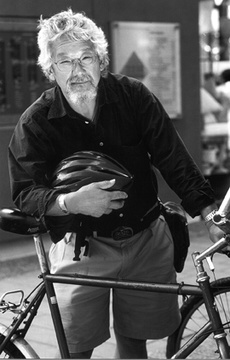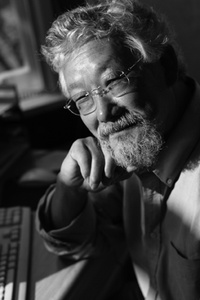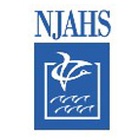“Nature is our home. And just as we take care of our house, we also must take care of nature,” renowned environmentalist David Suzuki, ranked Canada’s greatest living countryman in a public broadcasting poll, explained to Nikkei Heritage. “Nature takes care of us too. Nature cleans our air and water, makes the soil that grows our food, and provides the resources to make all our material goods.
“When you have a large victory in the Environmental Movement, it is temporary. Environmental predators continually seek to utilize and destroy nature for monetary gain,” he continued. “But when you lose, you lose forever.”
This fear of environmental degradation has fueled David Suzuki’s work for the last few decades. Born in Vancouver, David is a Sansei whose grandparents immigrated to Canada in search of new opportunities. Upon arrival, his grandparents had to navigate through bigotry. As the War Measures Act passed they quickly learned that in Canada equality and democracy were ideologies only accessible to selective racial groups. As the Japanese Canadians were corralled into the internment camps, David Suzuki first experienced alienation and effects of discrimination. This created an identity of self-hatred, isolation, and resentment towards discrimination.
“Racism shaped my hang-ups,” he said. Many of his life efforts were driven with a desire to prove to his Canadian community that Japanese people, or any other people, didn’t deserve to be treated in a racist manner. David, his two sisters, and his mother were all taken to Slocan City, where they lived in a derelict, run-down hotel with shattered windows and broken floor boards. They were initially separated from his father. Looking back he realized how much his parents tried to shield him from the pain of being interned.
The one positive thing that came out of his camp experience was that Slocan is located in the Rocky Mountains. David’s favorite childhood memories were camping and fishing with his hero, his father, after they were reunited.
“The mountains were filled with amazing life,” he reminisced. Those memories helped mold David Suzuki into a premier young geneticist, declining the offer of medical school, which brought tears to his mother’s eyes. After he finished his Ph.D. in zoology from the University of Chicago, he applied for a research job at the Oak Ridge National Laboratory in Tennessee—the same laboratory used in the secret Manhattan Project, where the U.S. government purified uranium for the atomic bombs dropped on Hiroshima and Nagasaki.
After the war, the laboratory’s focus shifted into biology and David was granted the freedom to follow any avenue of research he wanted. This helped him build confidence in his abilities as a scientist.
Tennessee was once a slave-owning state in the Confederacy and still displayed many signs of segregation and racism. David became involved with the local chapter of the National Association for the Advancement of Colored People (NAACP) because of his frustration with the separate and not equal treatment of African American people. This frustration built until David decided to no longer continue at the Oak Ridge National Laboratory and move back to Canada to become a professor of genetics.
At the University of Canada in Alberta, an opportunity to do a TV series of lectures by professors on a community channel came about. David realized that he was not afraid of TV, thus the opportunity spiraled into a new career in educational media. David has hosted numerous environmental TV and radio shows including the famous, “Suzuki on Science,” and the “The Nature of Things.”
Originally he only wanted to be a conveyer of information, educating the public about science and technology.
“Never thought I would be a celebrity, but people came to trust me, which gave me a certain amount of power. It empowered me,” he reflected. His shows exposed him to global adventures and an array of diverse communities.
Suzuki stands apart from many other TV hosts because he doesn’t just report the story and then leave. He has returned to organize with numerous communities he reported on that have needed support.
David is a rainmaker. He uses his connections to bring together networks that build, share, and help one another. Some examples are: organizing with the Haida Nation to preserve Windy Bay and create the Gwaii Haanas National Park Reserve and the Haida Heritage Site Agreement, helping support the Stein Valley Festival and preserve the last unlogged watershed in southwestern British Columbia, and working with Paiakan, leader of a Kaiapo village, Aucre, to stop the Altamire World Bank Dam Project. In addition, he helped build the Projecto Pinkaiti, a research station, in the Amazon Rainforest of Brazil. At Queen Charlotte’s Island in the panhandle of Alaska, he helped defeat a clear-cut logging project.
David Suzuki has organized around and educated on issues such as logging, mining, ecological destruction due to the development of dams, community displacement, racial discrimination, carbon emissions, and global warming.
“It’s a Matter of Survival,” a five-part series David hosted, described what the earth would be like in 50 years if humans continued down their path of consumption, manufacturing, and waste. It was a subject he had long wanted to report on.
“I have been worried for decades,” David said. The series created the highest response he had seen, with 16,000 people worried about the future writing in to share their concern. That community response helped build the support network to launch the David Suzuki Foundation.
David was inspired to form the foundation when his wife, Tara, told him, “you cannot just scare people,” and also because of the countless people who wrote asking, “What can I do?”
The Foundation covers numerous environmental topics including global warming, human health, conserving oceans, promoting conservation, building sustainable economy, and government policies like the Kyoto Protocol.
The Foundation challenges individuals to make simple changes in their life to work towards a sustainable lifestyle through a set of recommendations dubbed “David Suzuki’s Natures Challenge,” adopted by such notable Canadians as musicians Anne Murray, Nelly Furtado and the band Bare Naked Ladies. In addition, the Foundation challenges governments and corporations to create a plan for “Sustainability in a Decade.”
Throughout David Suzuki’s life he has had enormous success, but it was not an easy fight. There were many times when he wanted to give up because he was “fighting tooth and nail with organizations with enormous amounts of money.”
“[When scientists first started talking openly about global warming,] Exxon/Mobile spent a lot of money paying scientists to confuse the public with junk science,” he recalled.
In addition, his office has been broken into twice and there have been a few attempts on his life.
“Funny things happen that you cannot predict,” he said. “Regardless, you cannot give up.”
David Suzuki has dedicated his life to preserving the quality of life on this planet. While he has lost some battles, he has also won amazing victories. If we are still around in 50 years, it will be because of people like him. The responsibility is passing and now it is up to the next generation to continue his legacy. What can we do to continue to preserve communities, species, and the environment?
* This article was originally published in Nikkei Heritage Vol. XIX, Number 2 (Summer 2008), a journal of the National Japanese American Historical Society.
© 2008 National Japanese American Historical Society





